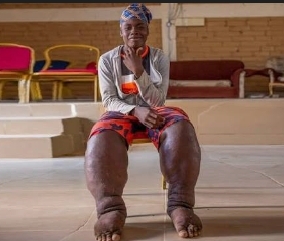Khadijah Aliyu
The African Media Network for Health and Environment (REMAPSEN) has launched the fourth edition of its annual Media Forum, with a renewed call for journalists across the continent to spotlight the fight against Neglected Tropical Diseases (NTDs).
The forum was unveiled during a virtual event held on Tuesday, November 25, 2025, which drew more than 100 journalists, partners, and health advocates from member countries.
WASH, Behavioral Change Key to Eliminating NTDs in Kano- Experts
Speaking at the launch, participants highlighted that eliminating NTDs in Africa requires more than medical intervention but sustained, compelling storytelling that reduces stigma and strengthens political commitment.
NTDs are preventable and treatable diseases that overwhelmingly affect impoverished communities in tropical regions.
They include river blindness, leprosy, dengue, rabies, schistosomiasis, trachoma, yaws, and lymphatic filariasis (elephantiasis), among others.
Delivering remarks, the Director of Partnership and Development at Speak Up Africa, Yaye Sophiétou Diop, stressed that media visibility directly drives government action.
“What journalists write about Neglected Tropical Diseases impacts political decisions and policies,” she said, urging members to ensure the forum contributes to a meaningful shift in public perception and policy response.
Public health expert, Dr. Christian Johnson, highlighted the media’s responsibility to maintain NTDs as a priority on national and regional agendas.
NGOs Partner REMAPSEN to Empower Journalists in the Fight Against NTDs
Programme Manager at the Civil Society Institute for Health in West and Central Africa (CSIH-WCA), Fatou Ndow, emphasised the need for deeper partnerships between media and civil society organisations, noting that CSOs gather powerful testimonies from affected communities that rarely reach wider audiences without the media.
The World Health Organization (WHO) Resident Representative in Benin, Dr. Kouamé Jean Konan, called for structured collaboration with REMAPSEN, stating, “It is your reporting and analysis that will show the extent of the challenges Africa faces.”
The WHO Team Lead for the Expanded Special Project for the Elimination of NTDs (ESPEN), Dr. Maria Rebollo Polo, shared data showing that donor cuts had severely affected medicine distribution in rural communities.
She noted however that African governments are increasingly stepping in with new funding commitments and innovative solutions.
Also presenting, Professor Awa Marie Coll-Seck, Chair of Galien Africa and former Minister, stressed that the elimination of NTDs must be central to Africa’s pursuit of health sovereignty and sustainable development.
Speakers unanimously urged journalists to abandon pity-driven narratives and instead amplify stories of progress, resilience, and community-led transformation.
The REMAPSEN Media Forum aims to strengthen the capacity of African journalists to reshape public perception, influence policy and accelerate the continent’s progress toward eliminating NTDs.





